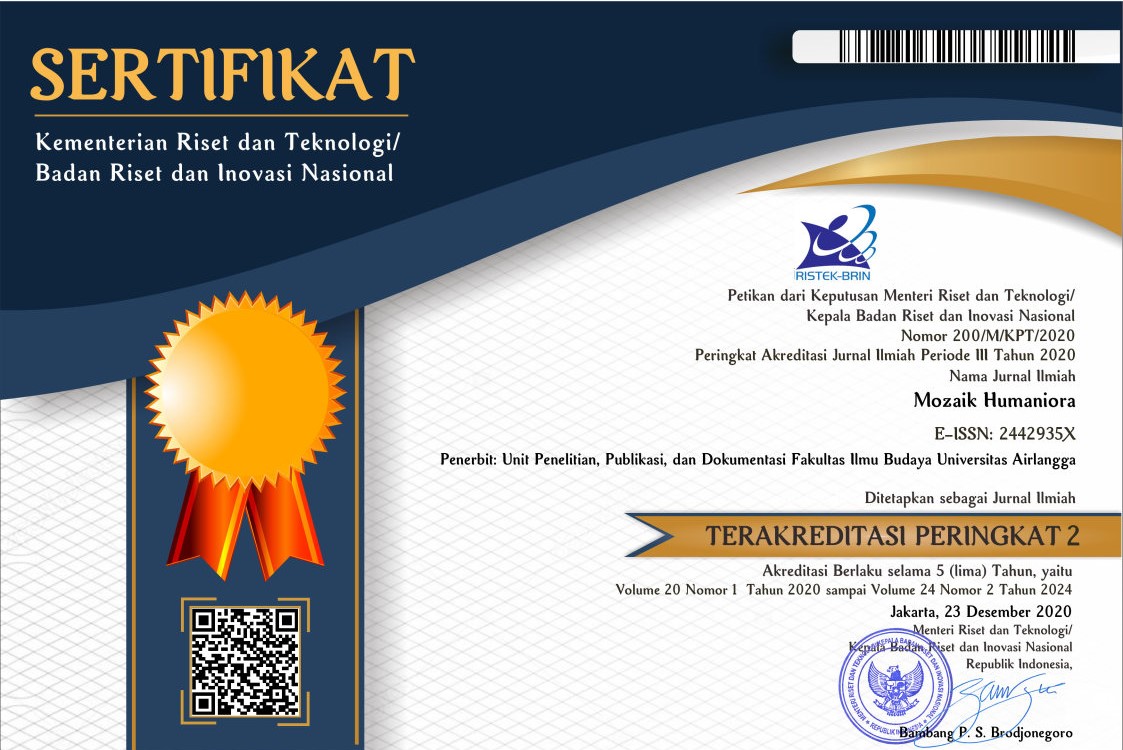Impotence in Education: Tracing Fragments of Agamben's Philosophy of Education
Downloads
This study aims to discuss Giorgio Agamben's rethinking education theory. In the theory of rethinking education, Giorgio Agamben emphasizes that potential can only be thought of in term of impotence. The results of the discussion find several points. First, when potency and impotency are separated from each other, it can be considered as a graded education system in which some students are instructed to actualize their potential in the form of standardized tests while others are abandoned by the system. Second, thinking impotence allows to rediscover the uniqueness of learning beyond the formulation of learning problems. Thus, without the concept of impotence, the discourse of 'child genius' becomes commodified as a force to be utilized and actualized in the name of neoliberal entrepreneurship. In short, we can reclaim genius and its relation to the issue of educational freedom only by returning to impotence.
Agamben, G. 1992. Stanza: Kata dan Hantu dalam Budaya Barat, diterjemahkan oleh Ronald L. Martinez. Minneapolis: Universitas of Minnesota Press.
________. 1993. Komunitas yang Akan Datang, diterjemahkan oleh M. Hardt. Minneapolis: University of Minnesota Press.
________. 1995. Gagasan Prosa, diterjemahkan oleh M. Sullivan & S. Whitsitt. New York: SUNYPress.
________. 1998. Homo Sacer: Kekuasaan Berdaulat dan Kehidupan Telanjang, diterjemahkan olehD. Heller-Roazen. Stanford: Stanford University Press.
________. 1999. Potensi: Kumpulan Esai dalam Filsafat, disunting dan diterjemahkan oleh D. Heller-Roazen. Stanford: Stanford University Press.
________. 2000. Berarti Tanpa Akhir, diterjemahkan oleh V. Binetti & C. Casarino. Minneapolis: University of Minnesota Press.
________. 2005. Keadaan Pengecualian, diterjemahkan oleh K. Attell. Chicago: University of Chicago Press.
________. 2007a. Infancy and History: On the Destruction of Experience, diterjemahkan oleh L. Heron. London: Verso.
________. 2007b. Profanations, diterjemahkan oleh J. Fort. New York: Zone Books.
________. 2010. Nudities, diterjemahkan oleh D. Kishik & S. Pedatella. Stanford: Stanford University Press.
________. 2011. The Kingdom and The Glory: For A Theological Genealogy of Economy and Government, diterjemahkan oleh L. Chiesa dan M. Mandarini. Stanfor: Stanford University Press.
Benjamin, W. 1986. Reflections. New York: Schocken.
Bush, G. W. 2002. No Child Left Behind. Washington, DC: US Department of Education.
Clemens, J. 2010. "The Abandonment of Sex: Giorgio Agamben, Psychoanalysis and Melancholia.” Theory & Event 13.
Dickinson, C. 2011. Agamben and Theology. London: Continuum.
Foucault, M. 2008. The Birth of Biopolitics. New York: Palgrave Macmillan.
Harwood, V. 2011. "Connecting the Dots: Threat Assessment, Depression and the Troubled Student.” Curriculum Inquiry 41, 586–609.
Lewis, T. E. 2006. "The School as An Exceptional Space: Rethinking Education from the Perspective of The Biopedagogical.” Educational Theory 56, 159–176.
________. 2009. "Education and the immunization paradigm”. Studies in philosophy and education, 28, 485–498.
________. 2010. "Messianic pedagogy”. Educational Theory, 60, 231–248.
________. 2014. "It's a Profane Life: Giorgio Agamben on Thefreedom of Im-Potentiality In Education.” Educational Philosophy and Theory 46 (4), 334”347. DOI: 10.1080/00131857.2013.779208
Lewis, T. E., & Vazquez Solorzano, E. 2006. "Unraveling the Heart of the School-To-Prisonpipeline.” Dalam Reinventing Critical Pedagogy: Widening the Circle of Anti-oppression Education, disunting oleh C. A. Rossatto, R. L. Allen, & M. Pruyn. Lanham: Rowman & Little-field.
Masschelein, J. 2001. "The Discourse of the Learning Society And the Loss of Childhood.” Journalof Philosophy of Education 35, 1–20.
Noguera, P. 2009. The Trouble with Black Boys... and Other Reflections on Race, Equity, and the Future of Public Education. San Francisco: Jossey-Bass.
Quart, A. 2006. Hothouse Kids: The Dilemma of The Gifted Child. New York: Penguin Press.
Ronell, A. 2002. Stupidity. Chicago: University of Illinois Press.
Simons, M. 2006. "Learning as Investment: Notes on Governmentality and Biopolitics.” Educational Philosophy and Theory 38, 523”540.
Simons, M. & J. Masschelein, J. 2008. "The Governmentalization of Learning and The Assemblageof A Learning Apparatus.” Educational Theory 58 (4), 391”415.
Tulley, G. 2009. "Gever Tulley Teaches Llife lessons through Tinkering,” http://www.ted.com/talks/lang/eng/gever_tulley_s_tinkering_school_in_action.html.
Watkin, William. 2021. "Agambens Impotentiality: Separation, Nonrelationality, and Destituent Potential in The Use of Bodies.” Italian Studies. DOI: 10.1080/00751634.2021.1896224.
Copyright (c) 2023 Made Pramono

This work is licensed under a Creative Commons Attribution-ShareAlike 4.0 International License.

Mozaik Humaniora is licensed under a Creative Commons Attribution-ShareAlike 4.0 International License. Both authors and Mozaik Humaniora agree with the following attribution of journal:
1. Copyright of this journal is possession of Author, by the knowledge of the Editorial Board and Journal Manager, while the moral right of the publication belongs to the author.
2. The journal allows the author(s) to retain publishing rights without restrictions
3. The legal formal aspect of journal publication accessibility refers to Creative Commons Attribution Share-Alike (CC BY-SA).
4. The Creative Commons Attribution Share-Alike (CC BY-SA) license allows re-distribution and re-use of a licensed work on the conditions that the creator is appropriately credited and that any derivative work is made available under "the same, similar or a compatible license”. Other than the conditions mentioned above, the editorial board is not responsible for copyright violation.


















